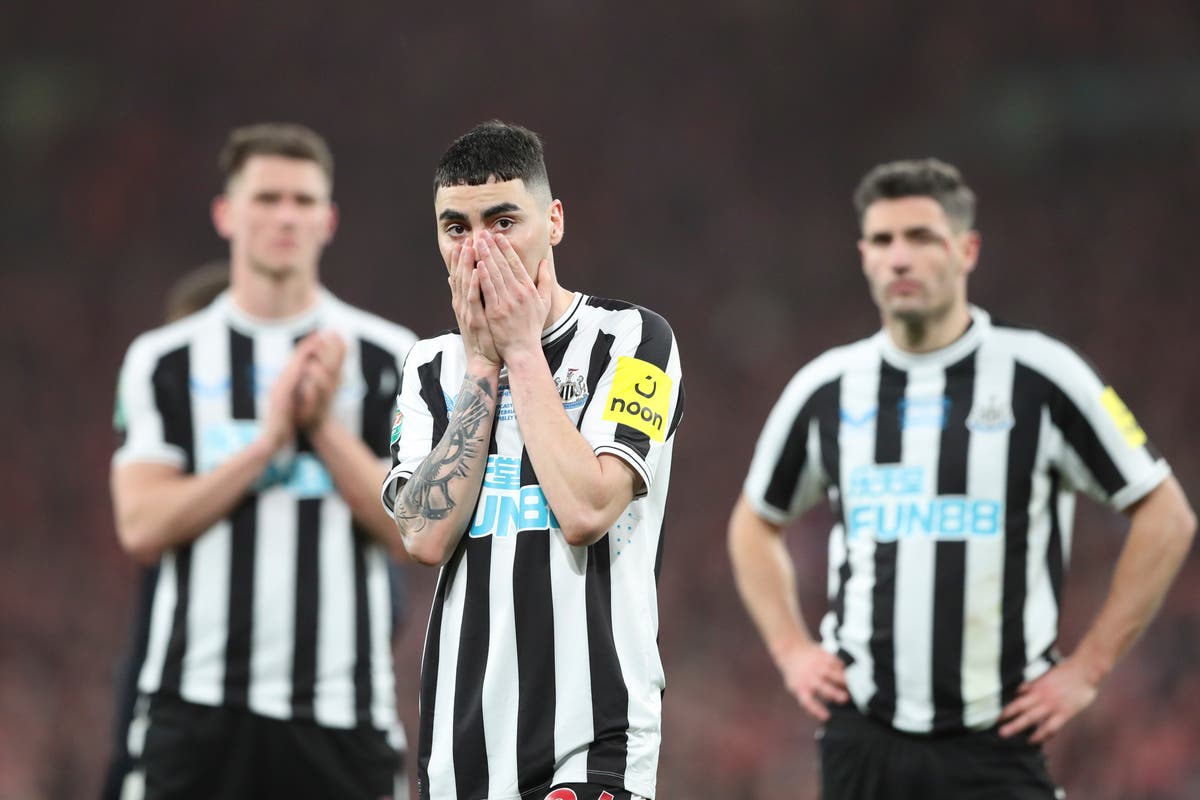
In England, there are plans to prohibit the loaning of football players between clubs with shared ownership
The new rule may affect Newcastle in the upcoming winter transfer window
The English Premier League intends to ban transfers on loan between clubs owned by the same owner. This information is reported by The Athletic.
The matter will be discussed at the general club meeting on November 21. To implement this measure, the votes of 14 out of 20 league representatives are required.
The ban in the EPL applies only to the upcoming winter transfer window — from January 1 to February 1, 2024. The temporary measure aims to protect the fairness of competition and provide an opportunity to reach a long-term solution.
In the future, the EPL may also prohibit complete player transfers within multi-club networks.
The article provides an example of a deal that would become impossible with introducing the ban. In the summer transfer window, Portuguese midfielder Ruben Neves, who played for Wolverhampton since 2017, moved to Al Hilal in Saudi Arabia. Newcastle is now interested in this player, seeking a replacement for the Italian midfielder Sandro Tonali, who has been disqualified for 10 months for betting. With the new rules, Neves' loan would be prohibited since both Al Hilal and Newcastle belong to the same owner — the Sovereign Investment Fund of Saudi Arabia (PIF).
As noted by The Athletic, the desire to introduce new restrictive measures is not explicitly targeted at Newcastle and Neves — it is part of a broader discussion about interconnected club deals. The EPL rules state that connections are determined by the legal form and the "substance of relationships." Owners who have a "significant influence on the club" fall into the category of owners.
The criteria for "influence" are determined not only by the league but also by the Football Association of England (FA). Among other things, owners' involvement in the club's daily life falls under this category. Definitions are blurry, but a September article in The Guardian reported that the FA wants to investigate potential violations of betting rules by the owner of Brentford, Matthew Benham, as he "has a significant interest in the club."
However, in 2018, the FA failed to obtain a court penalty for a British businessman, Maxim Demin, who owned Bournemouth at the time. Demin, who is of Russian origin, was accused of violating betting rules. Still, his lawyers proved that the laws did not apply to their client because he was not involved in the team's daily activities.
The most famous multi-club network in world football was created by the City Football Group — a subsidiary of the Abu Dhabi Football Group, which has owned English Manchester City since 2008. The City Football Group expands every year. Currently, the network includes 13 football clubs. In addition to ManCity, it includes American New York City, Australian Melbourne, Japanese Yokohama F. Marinos, Uruguayan Montevideo, Spanish Girona, Chinese Sichuan Jiuniu, Indian Mumbai City, Belgian Lommel, French Troyes, Italian Palermo, Brazilian Bahia, and Bolivian Bolívar.
Several other EPL clubs are also closely linked to overseas teams through their owners. In June 2023, BlueCo, an American consortium that owns London's Chelsea, acquired French Strasbourg. The financial terms of the deal were not disclosed. Still, several sources, including ESPN and The Guardian, reported that BlueCo paid €75 million for 100% of Strasbourg's shares. The agreement involves significant investments from BlueCo in Strasbourg's academy and in the men's and women's teams. Player loans between Chelsea and Strasbourg will also be prohibited if the new rules are approved.
Furthermore, the new owner of Bournemouth, Mike Fowler, acquired 33% of the shares of French Lorient in January, and the owners of Newcastle planned to complete the buyout of shares of Belgian Ostend in the spring. The deal was never officially announced.
Over the past five years, the number of teams whose owners own multiple clubs has increased by 700%. One reason for this format's popularity is the creation of a unified transfer line between partner clubs.
Published by Patrick Jane
10.11.2023
